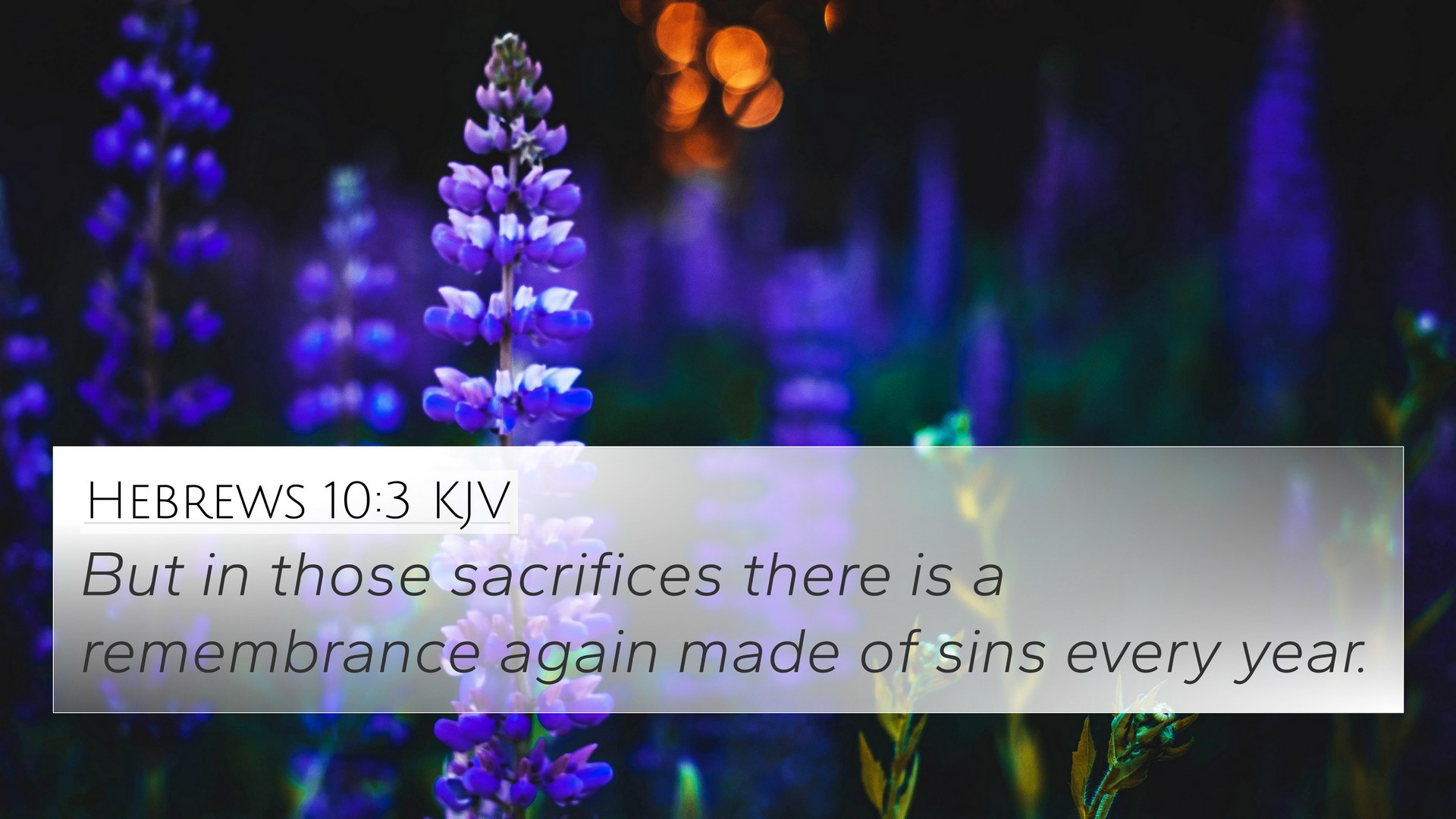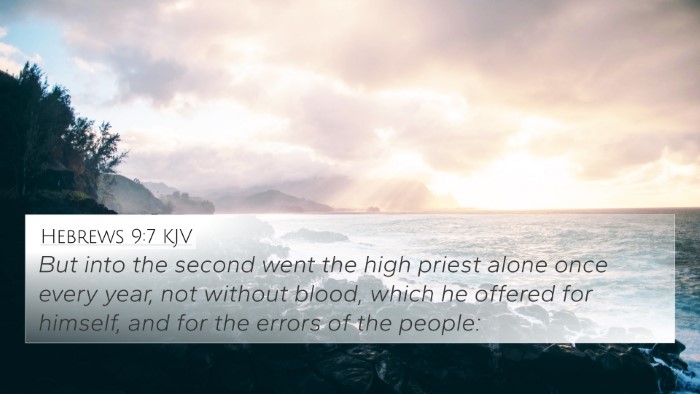Understanding Hebrews 10:3
Bible Verse: Hebrews 10:3 - "But in those sacrifices there is a remembrance again made of sins every year."
Overview and Context
The Book of Hebrews serves to establish the superiority of Christ over the old covenant, emphasizing His sacrifice once for all as opposed to the repeated sacrifices of the Levitical priests. This particular verse highlights the futility of the annual sacrificial system, pointing out that such sacrifices only serve as a reminder of sin rather than providing true atonement.
Key Insights from Public Domain Commentaries
Commentators such as Matthew Henry, Albert Barnes, and Adam Clarke provide valuable perspectives on this verse:
- Matthew Henry: He emphasizes that the continual remembrance of sin signifies the inefficacy of the sacrifices of animals, which could not cleanse the conscience effectively. Instead, they merely highlighted humanity's ongoing sinful condition.
- Albert Barnes: Barnes points out that in contrast to Christ’s singular offering, the annual sacrifices under the Law only renewed awareness of sin, underscoring the need for a more perfect sacrifice. The repetition serves to illustrate the limitations of the Law and the necessity for faith in Christ.
- Adam Clarke: Clarke notes that these annual sacrifices yield no real deliverance from guilt or sin but serve as a reminder that sin persists in the lives of the people, pointing to the greater need for the Messiah’s ultimate sacrifice.
Thematic Connections and Cross-References
This verse is rich with connections to other scripture, providing a broader understanding within the context of Biblical teachings on sacrifice and atonement. Here are key cross-references related to Hebrews 10:3:
- Leviticus 16:34: Establishes the yearly atonement through sacrifices.
- Hebrews 10:1: Expands on the Law's inability to make worshipers perfect.
- Hebrews 9:12: Discusses Christ entering the Holy Place with His own blood once for all.
- Psalm 40:6-8: Expresses the inadequacy of sacrifices in preference to obedience and a will to follow God's law.
- Romans 3:25: Highlights God’s grace through faith in Christ’s redemptive act.
- Matthew 26:28: References the blood of the New Covenant shed for many for the remission of sins.
- 1 Peter 2:24: Affirms the healing power of Christ's sacrifice on the cross.
- Isaiah 53:5: Prophecies about the suffering servant carrying our sorrows and healing our transgressions.
- John 1:29: John the Baptist identifies Jesus as the Lamb of God who takes away the sin of the world.
- Hebrews 10:4: Further emphasizes that the blood of bulls and goats cannot take away sins.
Exploring Inter-Biblical Dialogue
The connections between Hebrews 10:3 and its cross-references create a dialogue that spans across both the Old and New Testaments:
- The Old Testament sacrificial system is a shadow of the ultimate sacrifice that Christ fulfills, as noted in Hebrews 10:1.
- Psalm 40:6-8 emphasizes that God desires obedience over sacrifice, echoing the message of Hebrews regarding the sufficiency of Christ.
- Throughout the Gospels, the theme of Jesus as the Lamb serves to link these sacrifices to His mission, seen clearly in John 1:29.
Conclusion
Hebrews 10:3 serves as a crucial reflection on the limitations of the sacrificial system and the magnificent truth that is revealed in Christ's once-for-all sacrifice. Understanding this verse within the context of its cross-references allows for a more profound appreciation of God’s plan for redemption.
This understanding facilitates a deeper engagement with the scriptures and encourages further study on how these themes continue to resonate through various Biblical texts.
Resources for Further Study
If you're interested in exploring Bible verses that relate to each other or wish to implement cross-referencing Bible study methods, various tools are available:
- Bible concordance for identifying themes.
- Bible cross-reference guide for linking scriptures.
- Comprehensive Bible cross-reference materials for deeper analysis.
- How to use Bible cross-references for sermon preparation and personal study.












